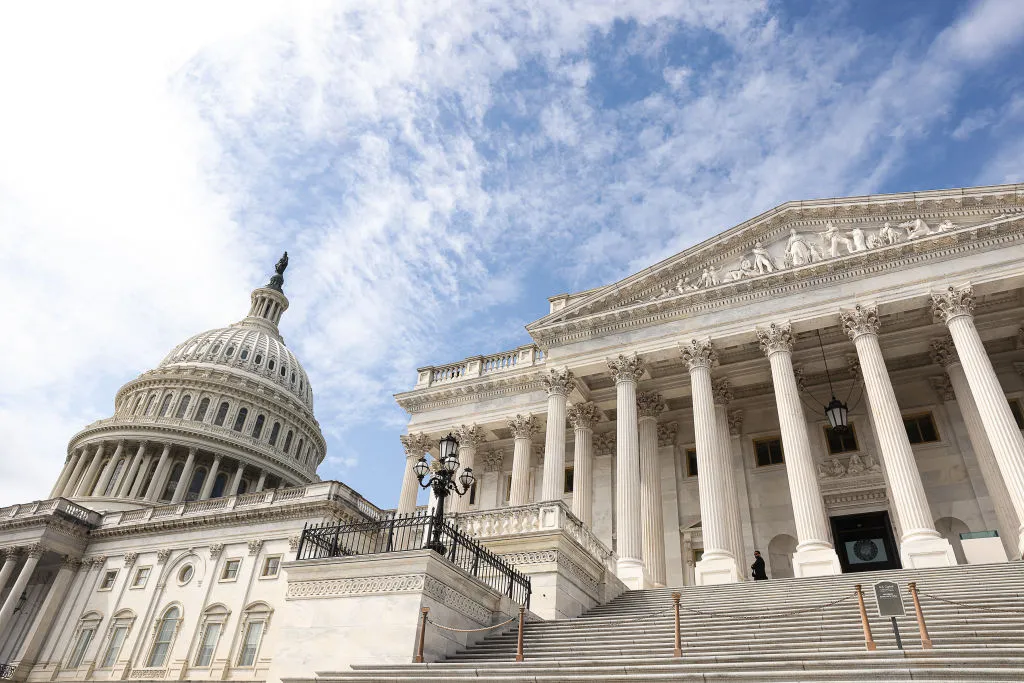
On Thursday, the US House of Representatives passed the Stop Terror-Financing and Tax Penalties on American Hostages Act, or H.R. 9495, a bill that grants the Secretary of Treasury the power to designate nonprofit organizations “terrorist organizations” and strip them of their tax-exempt status. The bill will now go to the Senate.
The implications of the bill passing the House are immense for American arts nonprofits, a sector of this industry that has historically been invested in social justice issues and the promotion of diverse, dissenting perspectives. If the bill passes the Senate and is then signed into law by the President, it could potentially impact many of the country’s most influential museums or alternative spaces.
The nominal intent of the bill is to stop the IRS from imposing fines and penalties on American hostages held abroad. Protests from numerous NGOs, including Amnesty International, center an additional provision—the unchecked power it grants the Secretary, who will not be obligated to provide evidence that any organization in question has links to terrorism. Additionally, the government will not be required to disclose any material evidence against nonprofits, leaving such organizations with little recourse to fight the decision.
Legislators in support of the bill argued that it sidesteps the “time-consuming bureaucratic process” involved in fights against so-called terror. Detractors warn of an imminent disaster for government dissent.
“The potential for abuse under H.R. 6408 is immense as the executive branch would be handed a tool it could use to curb free speech, censor nonprofit media outlets, target political opponents, and punish disfavored groups across the political spectrum,” the American Civil Liberties Union wrote in an open letter addressed to House Majority Leader Mike Johnson (R–LA) and Minority Leader Hakeem Jeffries (D–NY).
The letter was signed by a coalition of more than 150 American and foreign civil and human rights groups, among them the Arab American Institute, Human Rights Watch, Planned Parenthood Federation of America, Greenpeace USA, and the Sikh Coalition.
“In any other context, this legislation would be seen for what it is, a play from the authoritarian leader’s playbook,” Paul O’Brien, the executive director at Amnesty International USA, said in a statement.
The bill passed amid a resurgent global Palestine solidarity movement fueled by the more than 40,000 Palestinians killed in Gaza by Israel since the Hamas attack on October 7, 2023. That swell of activism, both here and abroad, has been accompanied by accusations of institutional censorship and repression.
In the United States, pro-Palestinian demonstrations on college campuses, including many art schools, have been squashed by school-sanctioned shows of police force. Billionaire donors, some of whom are major patrons of prestigious American museums, have threatened to pull funding if universities do not curb what they describe as antisemitism. Museums in the United States and particularly Western Europe, meanwhile, have been accused of enabling the growing crackdown culture.
A show by Palestinian American painter Samia Halaby scheduled to open this February at Indiana University’s Sidney and Lois Eskenazi Museum of Art was canceled in December 2023; in a letter sent to the artist, the museum cited unspecified “safety concerns.” This March, a portrait by Charles Gaines depicting the late Palestinian activist-writer Edward Said was temporarily removed from his solo show at the ICA Miami without Gaines’s knowledge or consent before an event for big museum patrons.
As Maddie Klett wrote in Art in America this October, legally, in the United States, censorship is “defined by suppression of art by a federal or state actor because of its content.”Such actors cannot easily interfere with art institutions; if suppression takes place at an institution, it is at the discretion of its leadership. That may not always be the case.
Critics of the bill passed on Thursday claim that due process—a constitutional right that, in part, makes fighting government censorship possible—is jeopardized by H.R. 9495. Something similar happened during the Red Scare of the 1950s, when Americans were frequently accused of Communist loyalties publicly, without proof, and sometimes baselessly, then subjected to severe legal consequences with support from the Subversive Activities Control Act of 1950. An important difference being that those accused of communism could defend themselves during the congressional investigations, and the investigations themselves are superseded by higher powers.
For a more contemporary comparison, in recent years several European countries have signed into effect similar laws that clamp down on the freedom of arts organizations—with disastrous impact on the respective local scenes. In Slovakia, officials signed a bill that forced NGOs receiving more than €5,000 a year in foreign funding per year to as disclose details about the money they received. Amnesty International called that bill, which has been widely protested in Slovakia, “a thinly disguised attempt to stigmatize civil society organizations that are critical of the authorities and hamper their vital work.”
The bill preceded a rise in accusations of censorship and the government firings of Slovak cultural leaders. As reported earlier this year in ARTnews, cultural workers from hundreds of theaters, galleries, and other institutions across Slovakia threatened to strike in reaction to the firings, vowing to protect the country “from the destructive actions of politicians.”

